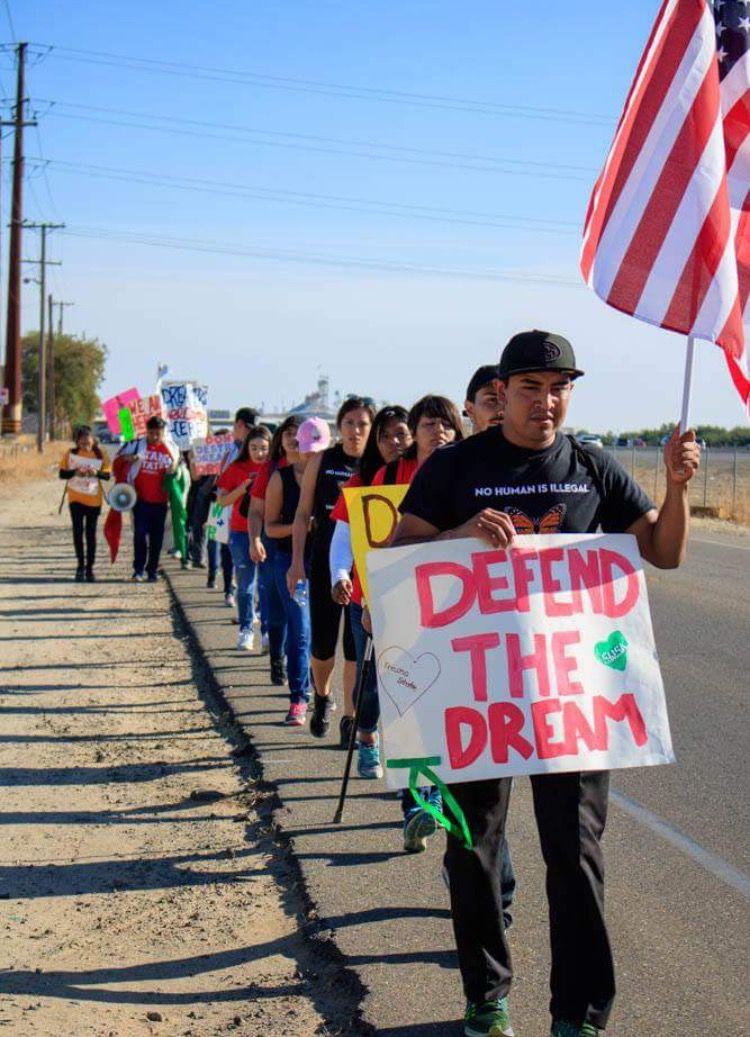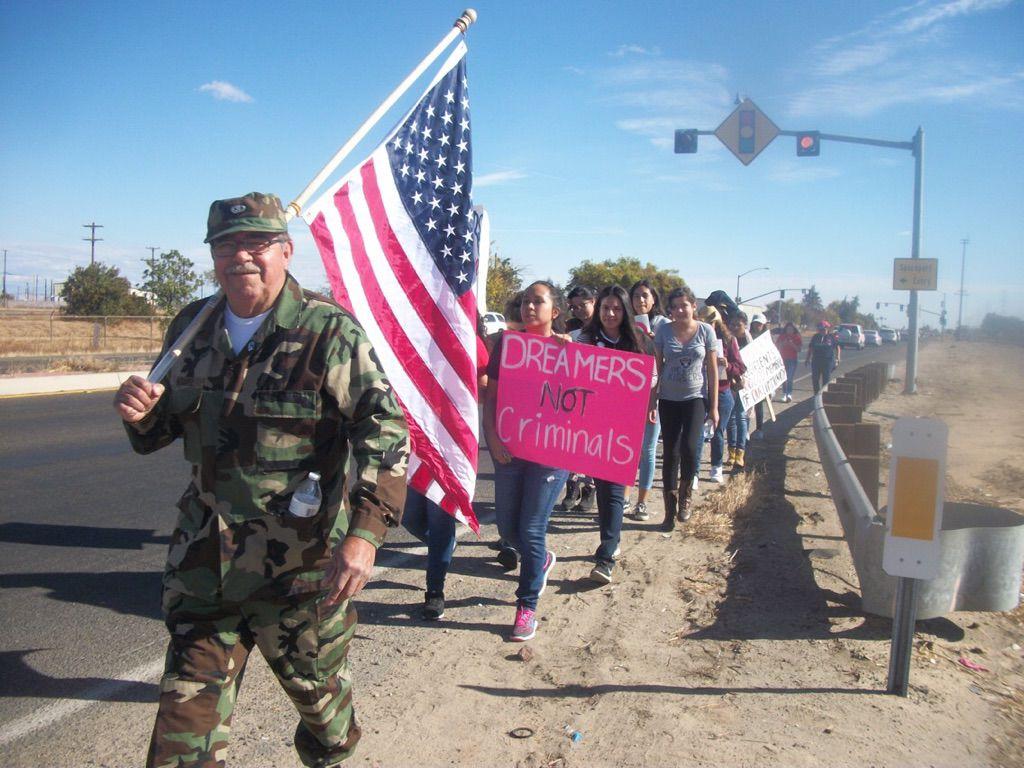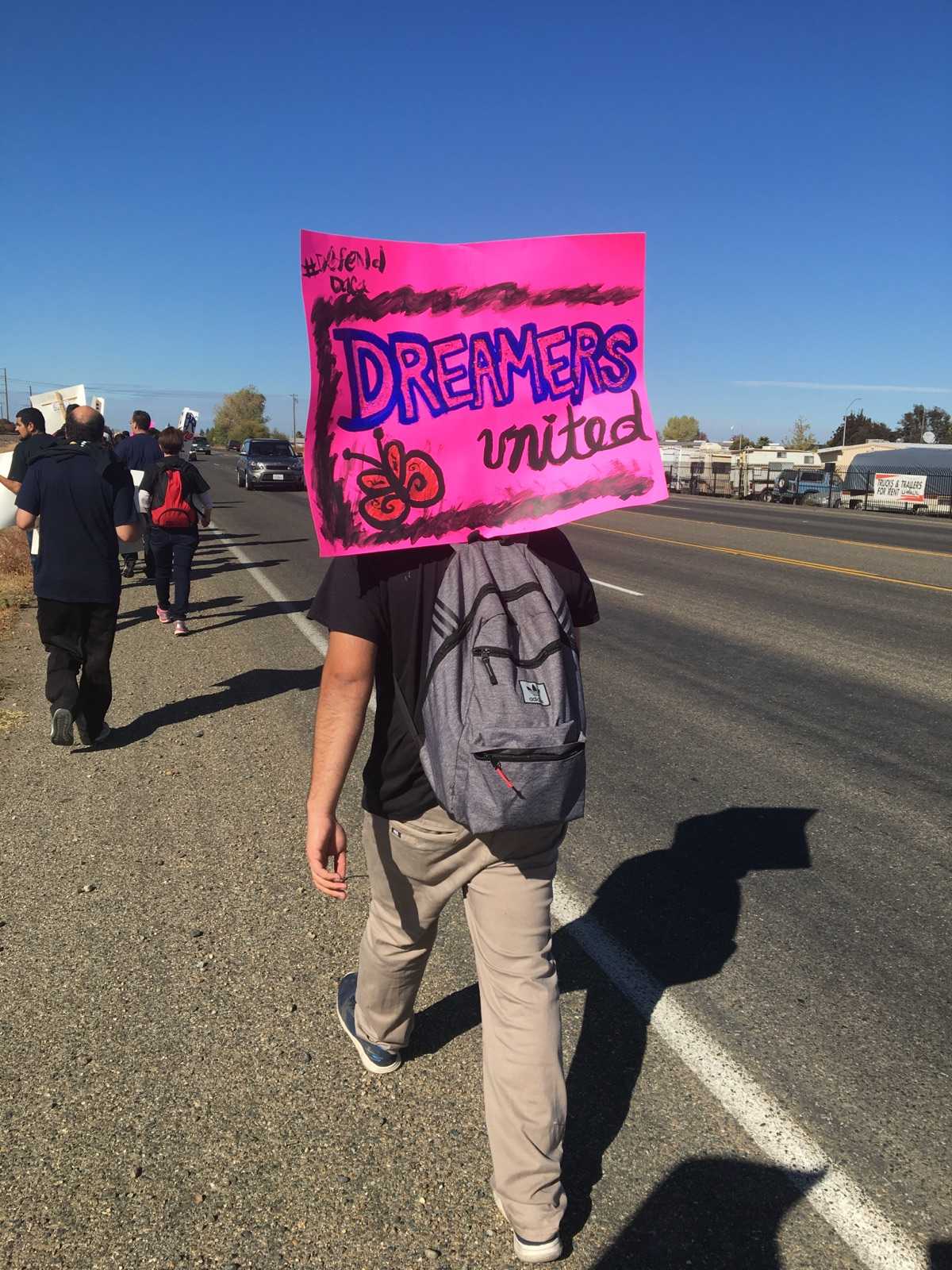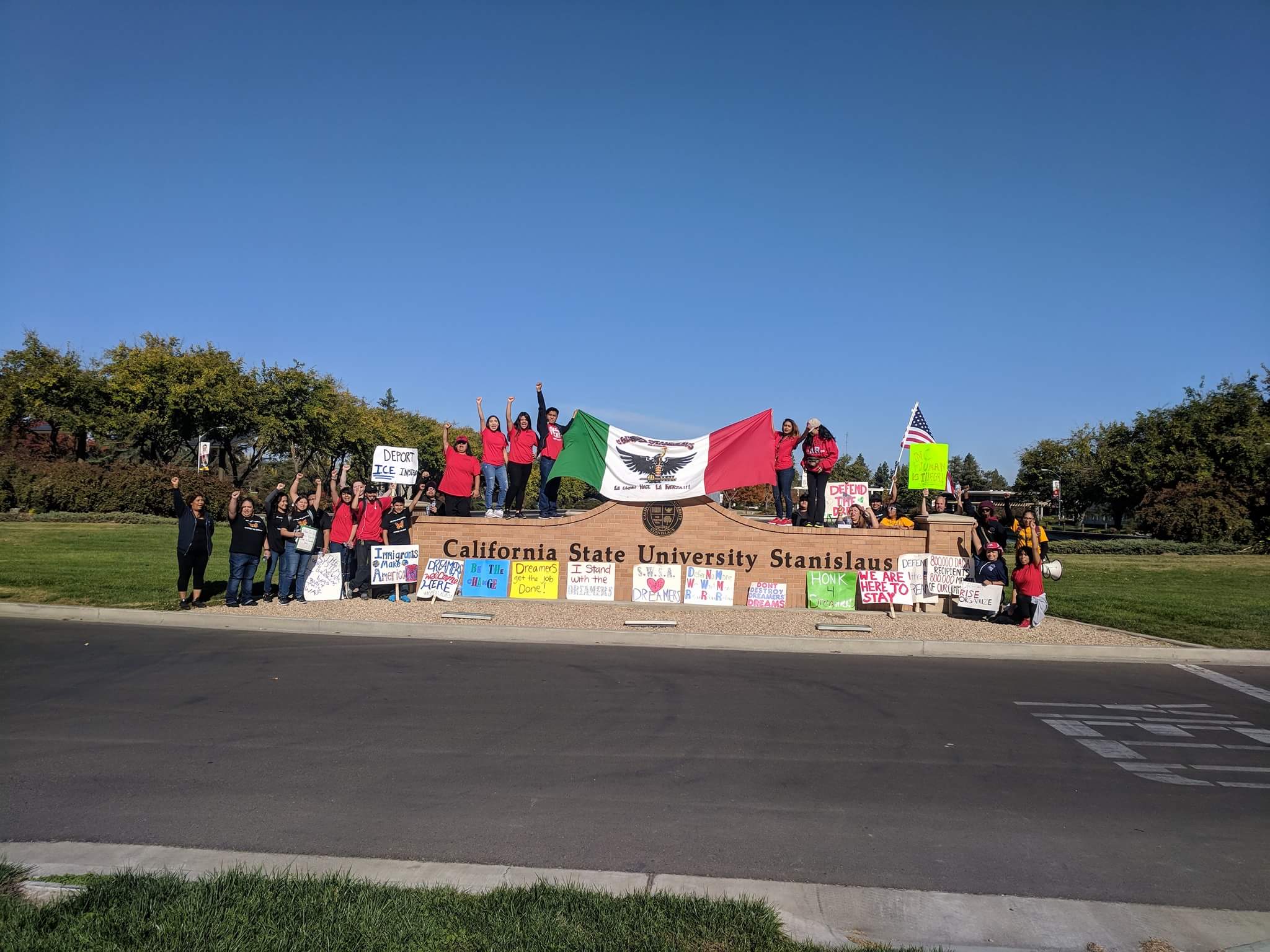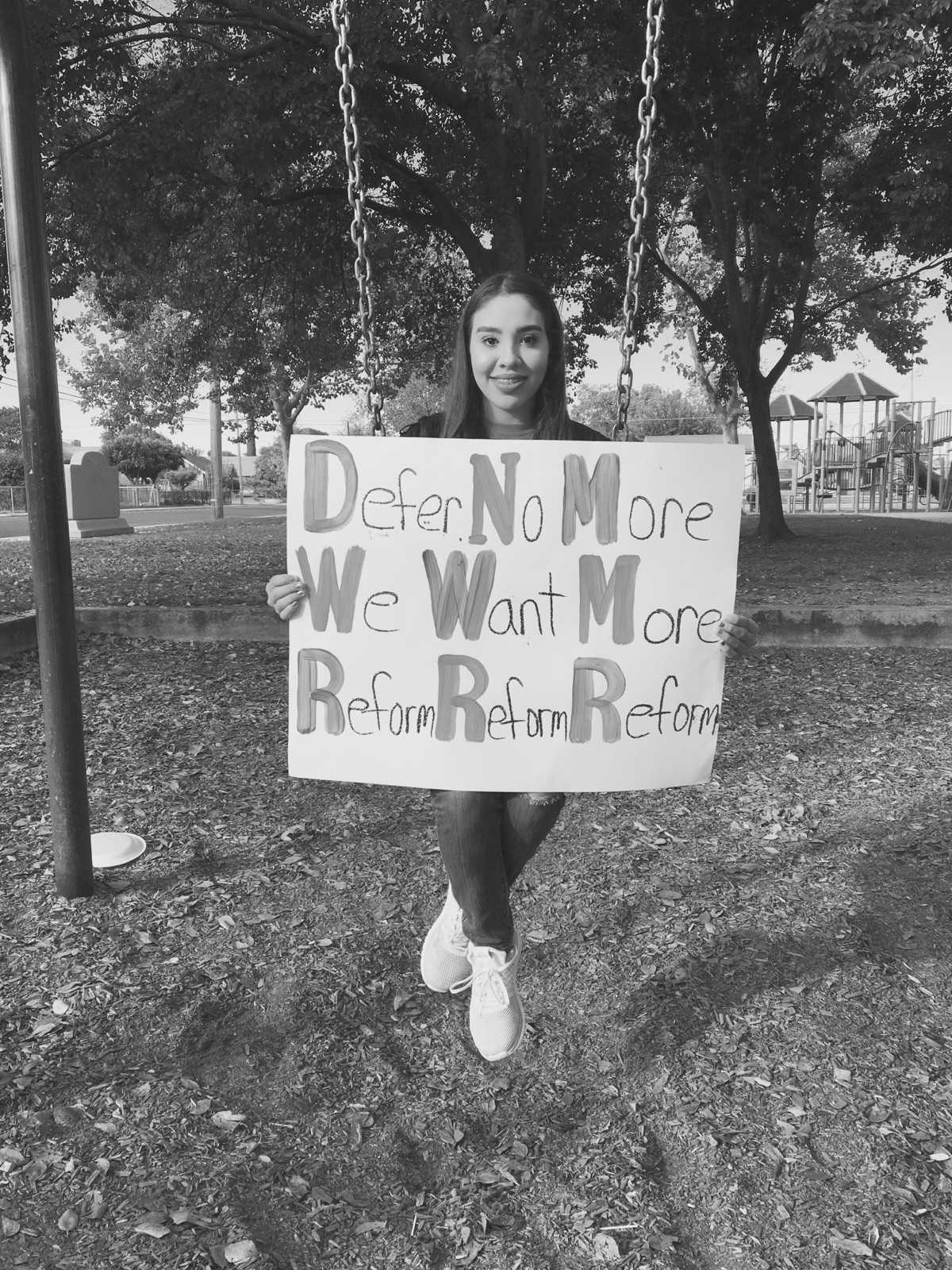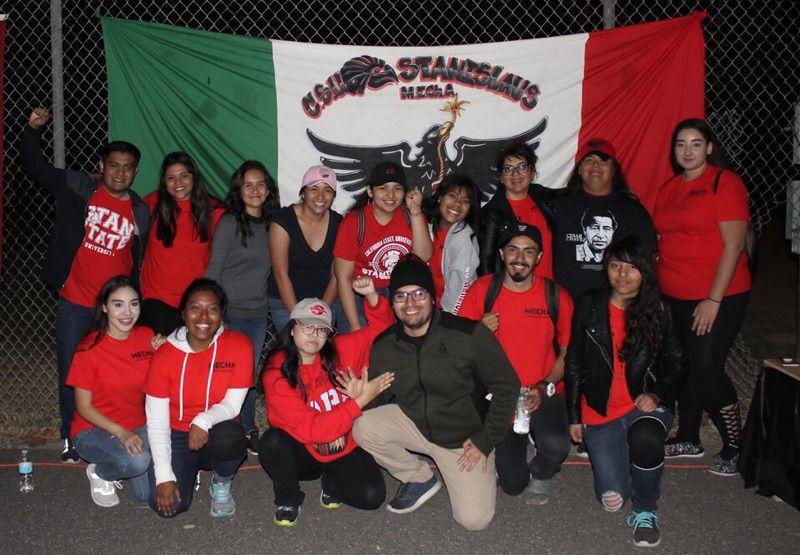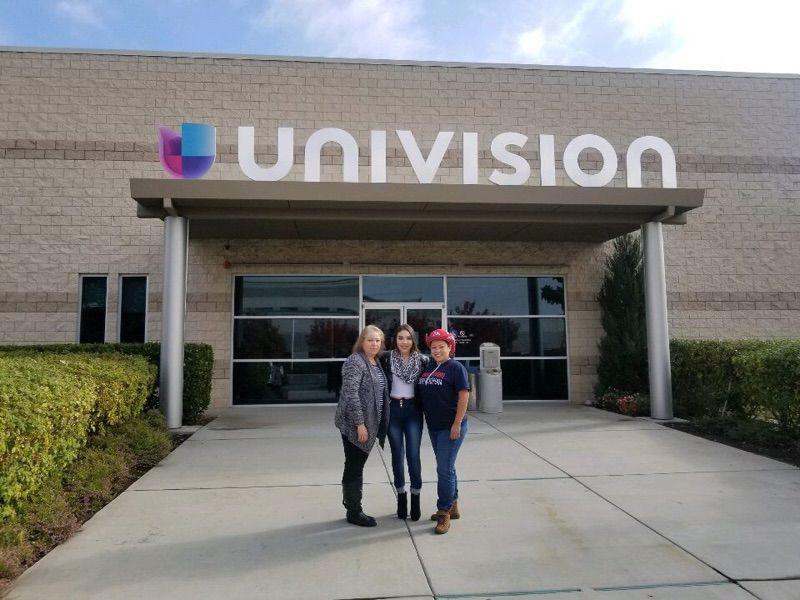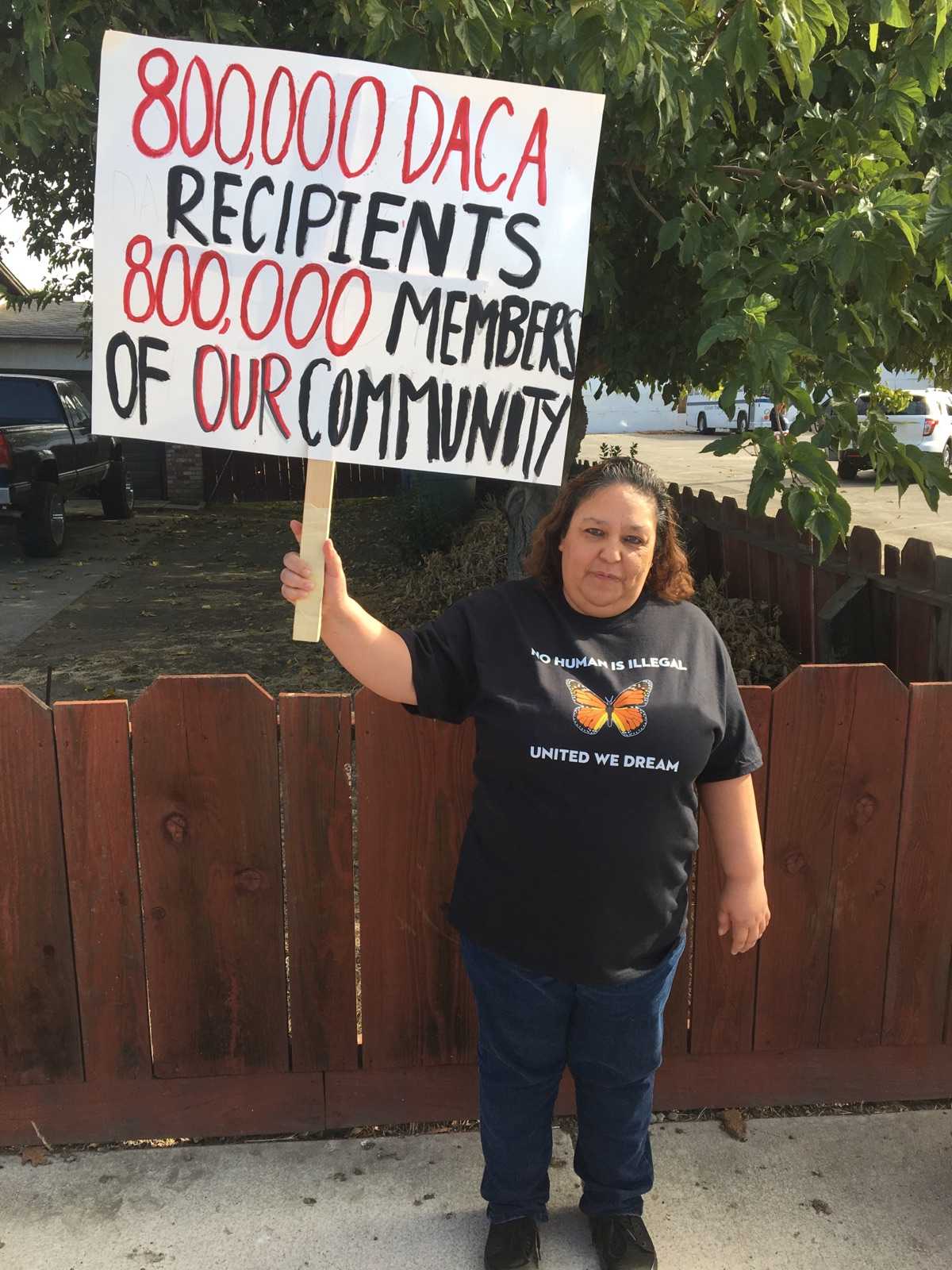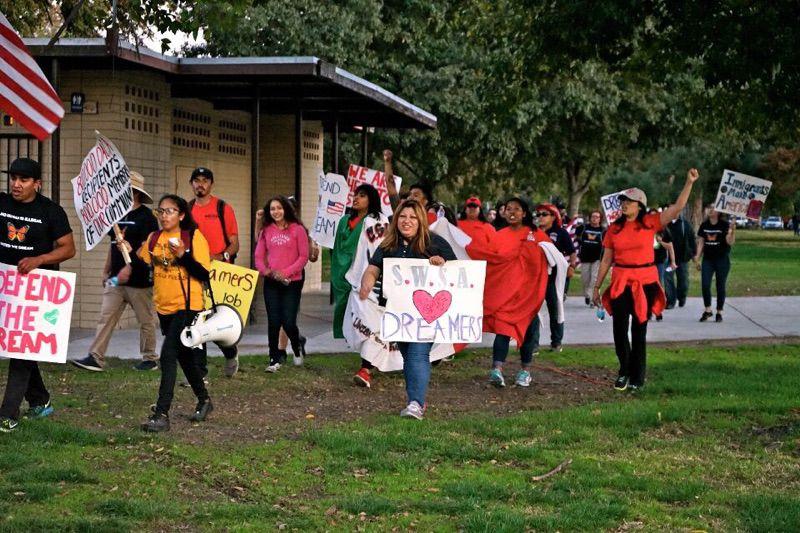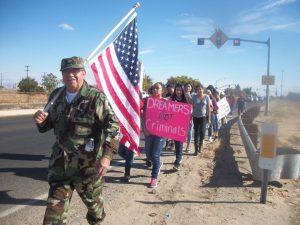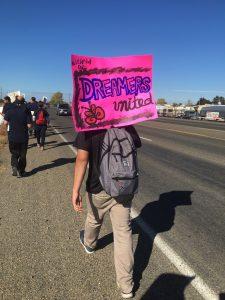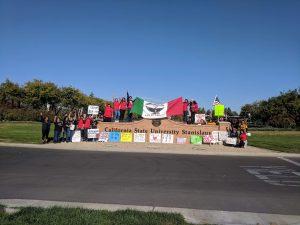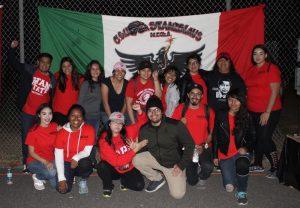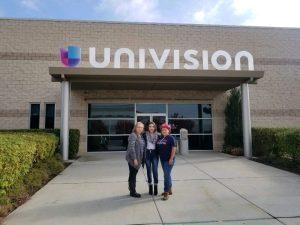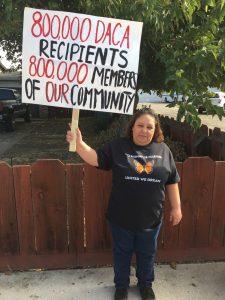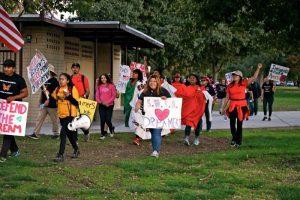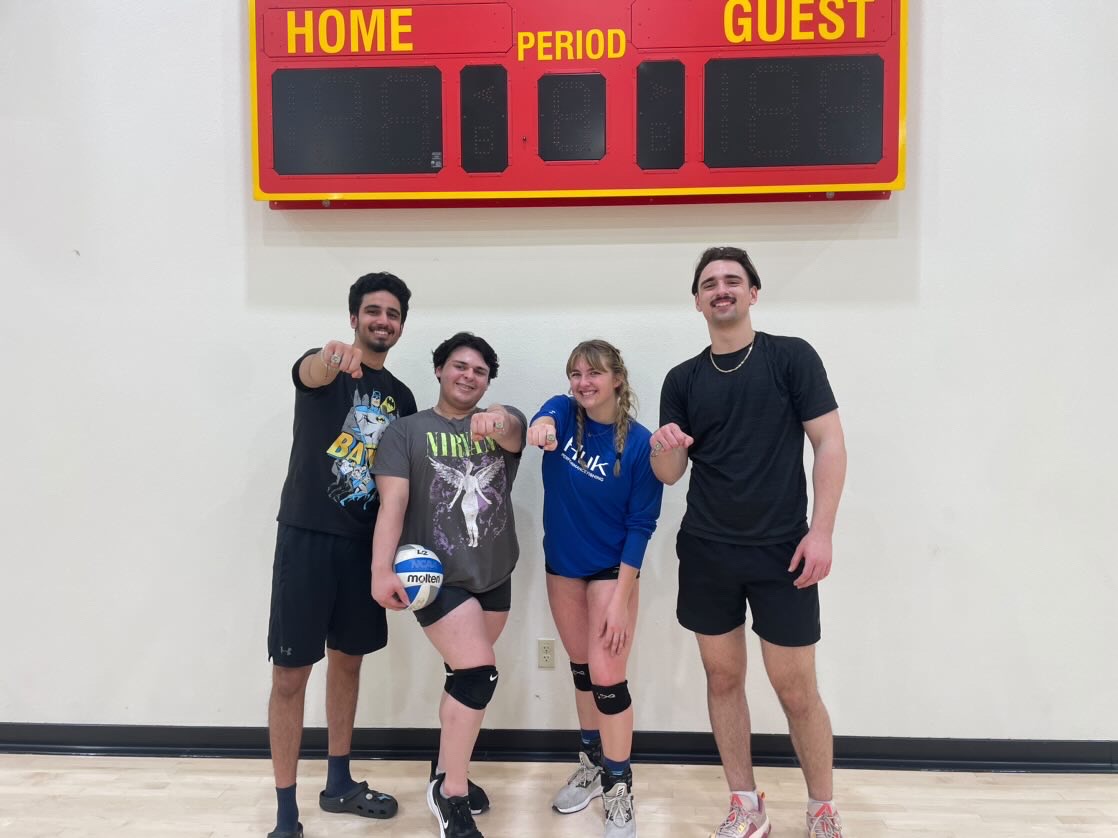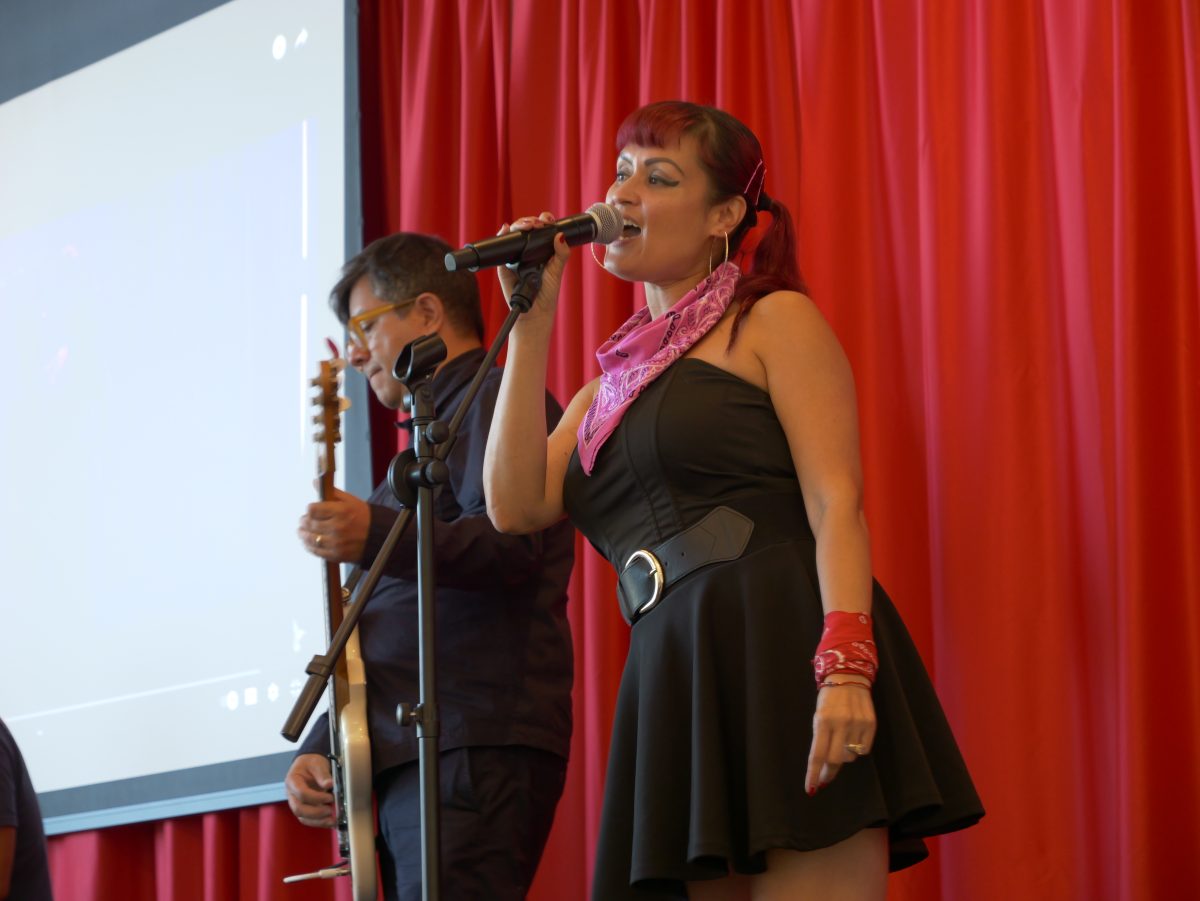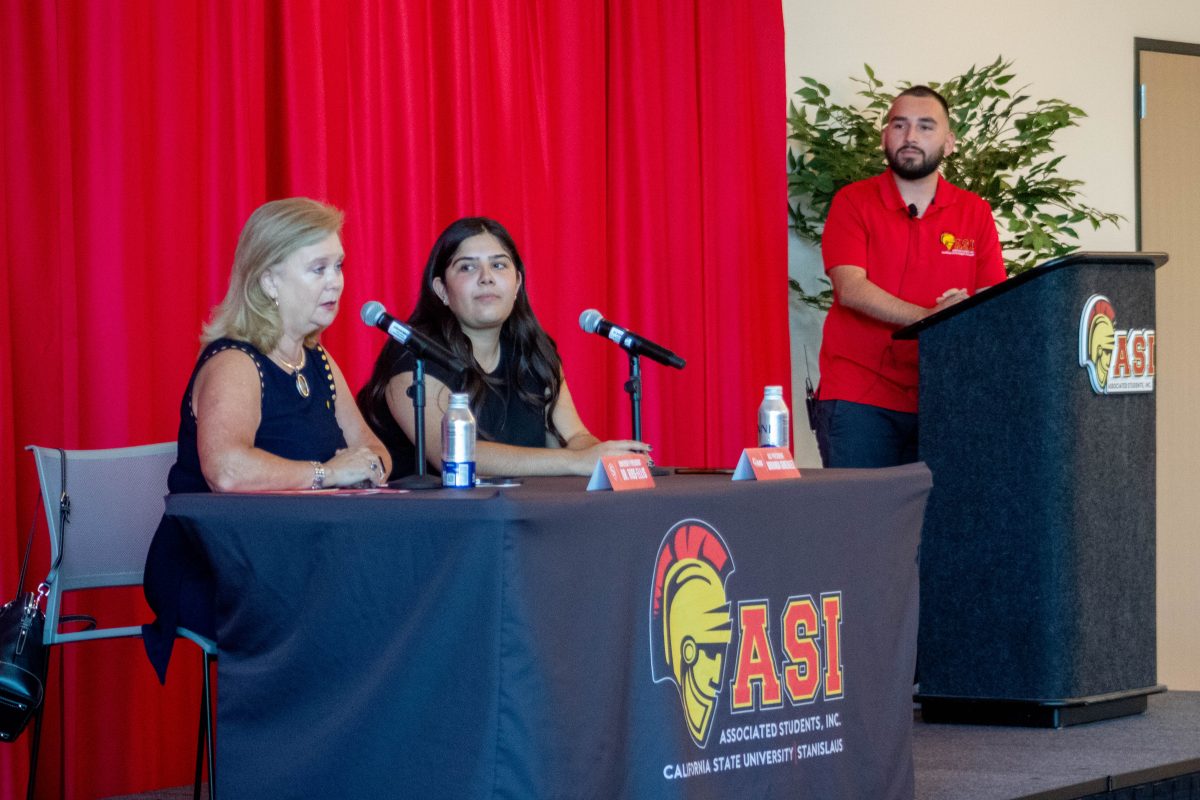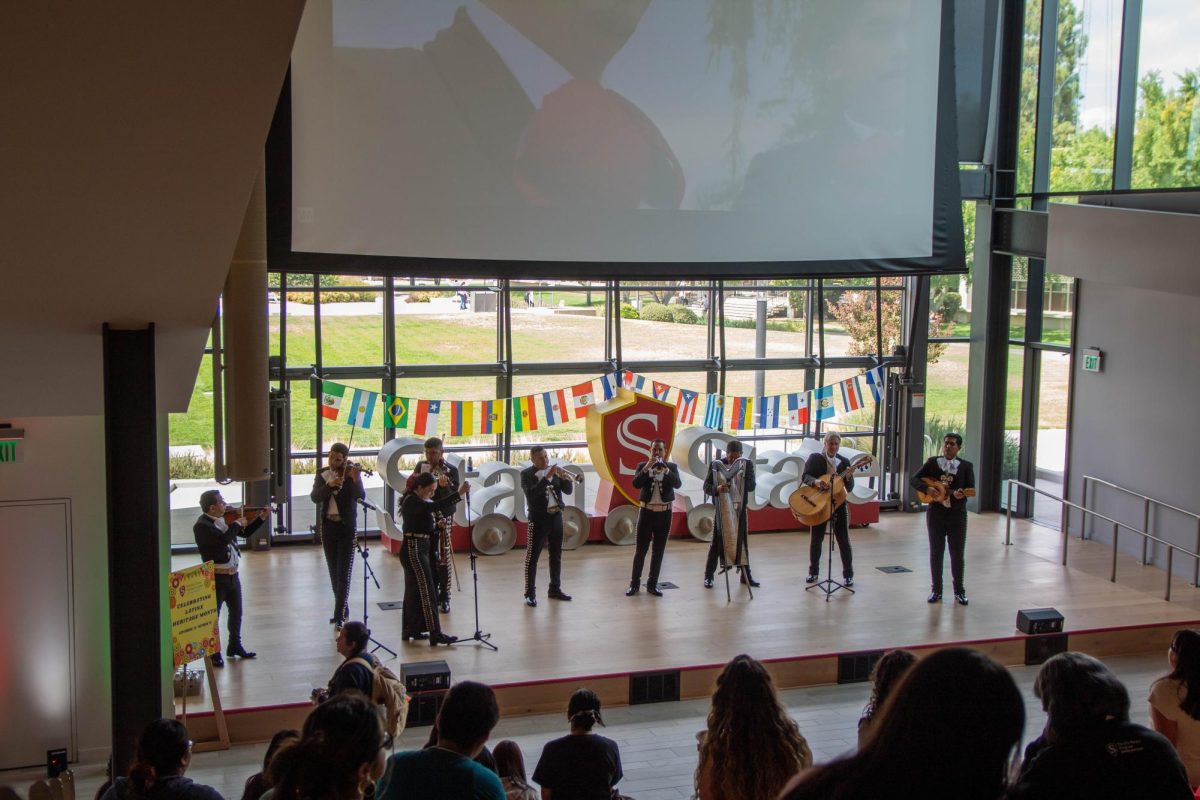The Movimiento Estudiantil Chicanx de Aztlan (MEChA) Club organized a three-day march with the hopes of advocating and pressuring Congress for a “clean DREAM Act” in order to help students who were recipients of former President Barack Obama’s executive order, the Deferred Action for Childhood Arrivals (DACA).
The three-day march went from Merced to Livingston, Livingston to Turlock and Turlock to Modesto on Nov. 10-12.
This is a Q & A with some of MEChA’s members who helped organize the march: Alejandro Garcia (senior, Business), Julissa Ruiz Ramirez (sophomore, Political Science), Gloria Vallin (senior, Communication Studies) and Karen Alcazar (sophomore, Psychology).
Signal: Why did you decide to march for three days?
Garcia: I was thinking first off Turlock—coming out to the community and talking about the issue of immigration. But then, little by little, I started looking into it and realized that we’re very similar and love our communities that have a high amount of undocumented communities, but you never hear their voices, you never get to hear their stories unless you personally see the realities that a lot of people go through in this area.
I saw that it was Veteran’s Day weekend, some people had Friday off and with these three days we would at least get different kinds of groups and people to come out and join us—and every day there was different people that came out from different towns who saw us and would pull right over and started walking with us. That’s why I had the intention of different days and different regions.
Signal: Did you collaborate with anyone for help? Any organization on campus or off campus?
Garcia: There was a few professors, part of the CFA, professor Dr. Albright, Dr. Murrieta as well. They were all supporting us. The UFW gave us the routes, tips and how to march. El Concilio from Modesto gave us contacts from advocates who would come out and provide more sources. Mi Familia Vota helped organize one of the rallies.
Vallin: On the first day, we also had veterans come out.
Signal: While marching, MEChA posted videos about it on social media. What were people’s response to these posts?
Vallin: We got some really rude posts, because as a publicist I did read them, but I decided to ignore them because they were negative. And at this point, we were just trying to be positive through the whole thing, and I really didn’t want to tell the Mechistas and for that spirit to go down. We needed all that spirit and fight in us to keep walking and continue.
Alcazar: While we were walking we were having people flip us off.
Signal: Which out of all three days of the march was more meaningful to you and why?
Vallin: The third day. I don’t know, when we promoted it everyone was more excited for Turlock to Modesto. For some reason it was just that specific route that everyone was more interested in. That was the day where these children and their father came out and gave us some snacks, chips and drinks and popsicles. We had people driving by, stopping and dropping off people to march, and the parents would actually go behind us and make sure we were okay.
Ruiz Ramirez: I thought the end was powerful because people there were even joining our little circle. There was this man who said ‘Oh I want to get healed too,’ and he joined our circle. Someone also gave pizzas, and we ended up sharing with all of the park.
Signal: How was it having local news people approach you for interviews and having an interest in what you were doing?
Ruiz Ramirez: We were all hyped. It gave us more energy, especially when they told us ‘We have a national news,’ we all got hyped and chanted louder, we started marching faster. It gave us energy and hope.
Alcazar: Right when we got home we sat down in the living room, we threw everything, took off shoes and were like ‘Let’s look for the links.’ When we played the first one I was screaming, and it actually was not bad. The clips were really good, they got really good clips. My nephews were all screaming, ‘Oh my God, you’re on TV!’
Signal: What does it mean to you having hosted a march that advocates for immigrants’ rights in an area like the Central Valley?
All: La unión hace la fuerza, or unity makes strength.
This article has been updated to include the grades of Julissa Ruiz Ramirez(sophomore, Political Science) and Karen Alcazar (sophomore, Psychology).
Categories:
Q&A with MEChA’s three-day march organizers
Jesus Alvarado
•
November 27, 2017
0
More to Discover

